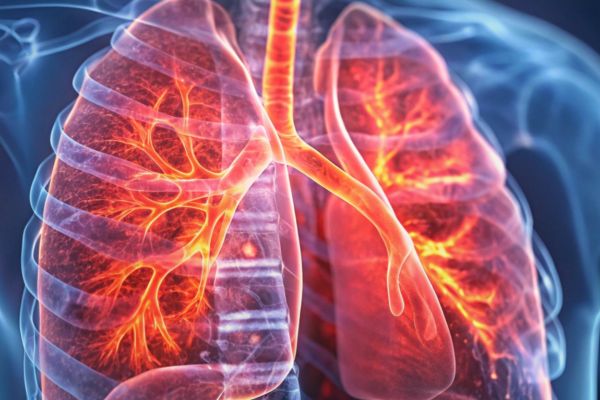There are certain things every person with Alpha-1-related-COPD should know in order to help prevent disease and live their best quality of life. We have compiled a list of subjects each Alpha with lung disease should be acquainted with and have included links to informational articles and worksheets to help you learn everything you need to know about living with COPD.
The main items in Alpha-1 COPD patient education are:
- General overview of Alpha-1-COPD
- Smoking cessation
- Medication and delivery system training
- Nutrition
- Immunizations
- Management of environment
- Self-assessment and self-management instruction
- Pulmonary rehabilitation
- Education regarding coping with COPD
- Education about clinical trials and support groups
Scroll through below to find information and resources for each category.
1) General overview of Alpha-1-COPD
The history and mechanisms of Alpha-1 Antitrypsin Deficiency should be provided by your healthcare provider. This should generally be done during a meeting with you and any family members who can participate.
- My Alpha-1 Checklist
- The First Visit After Your Alpha-1 COPD Diagnosis
- How to Discuss Alpha-1 with Your Doctor
2) Smoking cessation
This is such an important aspect of preventing the lung disease associated with Alpha-1 that several tenets deserve repetition.
- All smokers should be strongly advised to quit.
- Many physicians agree that individuals who smoke cigarettes should not be prescribed augmentation therapy and those receiving augmentation therapy who smoke should not have their augmentation therapy continued. The reasoning behind this is that cigarette smoke contains potent oxidants that have been demonstrated to be capable of inactivating alpha-1 antitrypsin. In fact, a single cigarette can inactivate virtually all of the alpha-1 antitrypsin in the lungs. Thus, cigarette smoking in an individual receiving augmentation therapy negates the effects of this expensive medication.
- The risk of inhalation of tobacco smoke by Alpha-1 patients is greatly amplified compared to those without this genetic condition. Many have suggested that the avoidance of all tobacco smoke by Alpha-1 patients could prevent a majority of the associated lung disease. For individuals who are still smoking or living in a household with smokers, the risks to individuals with Alpha-1 cannot be overemphasized.
- Nicotine replacement therapy may be helpful to those who are addicted. An addict, for this purpose, may be defined as someone who smokes one pack of cigarettes per day and smokes a cigarette within the first 30 minutes of waking up in the morning. Dose-dependent nicotine is available in the form of chewing gum and transdermal patches. Zyban®, BuSpar®, Wellbutrin®, Clonidine®, and other non-nicotine medications have also been used to reduce withdrawal symptoms
3) Medication and delivery system training
- Education about use of inhalers and other standard medications.
- Education about augmentation therapy and specific Alpha-1 interventions.
- Education about participation in clinical trials may be considered
4) Nutrition
- Establish ideal target body weight.
- Assess need for nutritional counseling and/or diet recommendations.
5) Immunizations
- The Centers for Disease Control (CDC) recommends pneumococcal vaccination for all individuals between the ages of 18 and 65 who have chronic liver disease, chronic lung disease, or diabetes.
- An annual influenza vaccination is recommended for individuals with chronic pulmonary disease unless contraindicated due to severe anaphylactic hypersensitivity to egg protein. Influenza vaccination has been shown to be 30 to 80 percent effective in preventing illness, complications, and death in high-risk populations. Pneumococcal and influenza vaccines can be administered concurrently at different sites without increasing side effects.
- Immunizations against Hepatitis A and Hepatitis B have been suggested for all individuals with Alpha-1.
- The CDC recommends a single dose of Tdap for adults 19 or older who have not previously received a Tdap vaccine. The CDC also recommends adults receive a tetanus and diphtheria booster (called Td) every 10 years. In Alphas, pertussis can be a severe illness; therefore, choosing a Tdap instead of a Td every 10 years at time of tetanus booster is recommended by the AlphaNet medical directors.
6) Management of environment
- Patients with COPD should avoid environmental exposures that exacerbate their symptoms (e.g., occupational exposures, secondhand smoke, and air and dust pollution) or result in respiratory infections.
- If documented to be a significant problem for a given patient, the avoidance of pets (dogs, cats, birds) should be considered.
- Patients who require supplemental oxygen who live at higher altitudes should consider the possibility of moving to a lower altitude.
7) Self-assessment and self-management instruction
- Use of a peak flow meter or hand-held spirometer in selected patients.
- Keeping of a personal self-assessment log.
8) Pulmonary rehabilitation
- Assess your ability to exercise. Talk to your healthcare provider to discuss your options to exercise safely.
- Establish an appropriate exercise regimen.
- Discuss pulmonary rehabilitation with your healthcare provider and request a referral, if appropriate.
9) Education regarding coping with COPD
- Assess stress management skills with a physician and request therapeutic options, if indicated.
- Discuss issues regarding sexuality concerns, if indicated.
10) Education about clinical trials and support groups
Education about participation in the Alpha-1 Research Registry and membership in an Alpha-1 support group should be provided by your physician or found online.
